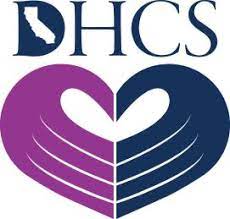There are various addiction treatment programs available for first responders. The most appropriate program depends on an individual’s unique situation and needs. Some programs are outpatient, while others are inpatient. Either of these two may focus on detoxification, counseling, and therapy.
Here are some of the different types of addiction treatment programs available:
Outpatient Programs: In an outpatient program, patients can live at home and continue working or going to school while receiving treatment. These programs typically involve a few hours each week and may include individual counseling, group therapy, and medication management.
Inpatient Programs: Inpatient programs require patients to stay at the treatment facility for some time, usually 30 days or more. During this period, patients receive 24-hour care and support. Inpatient programs typically include detoxification, individual counseling, group therapy, and recreation and leisure activities.
The inpatient program may be suitable for individuals who’re deep in their addiction and require extensive care and support.
Detoxification Programs: Detoxification programs help patients withdraw from drugs or alcohol safely. There are two main types of detox plans. Detoxing cold turkey, where drug usage is stopped abruptly. However, this exposes patients to sometimes unpleasant withdrawal effects.
The other option is tapering, which involves a gradual reduction in drug intake. Tapering is the most preferred detoxification with the most negligible withdrawal effects.
Medication-Assisted Therapy (MAT): This holistic program uses approved medicinal drugs in concert with counseling and therapy. In severe cases of addiction, therapy isn’t enough to exhaustively treat the addiction. Some approved drugs may be necessary to forestall some withdrawal effects by mimicking addictive drugs without adverse effects.
MAT has been proven effective in treating a wide variety of substance use disorders. This method significantly improves patient survival and may reduce the need for inpatient treatment.
Inpatient vs. Outpatient Treatment
Inpatient care offers around-the-clock supervision and support from medical staff. This can be beneficial for patients struggling with severe addiction or who have relapsed in the past. It can also be a good option for patients who need detoxification services.
The downside of inpatient care is that it can be more expensive than outpatient care. and patients have to give up work or other responsibilities while in treatment.
On the other hand, outpatient care allows patients to continue meeting their responsibilities at work or home while still receiving treatment. This can make it a more convenient option for most first responders. However, outpatient care may not be as intensive as inpatient care. Therefore this treatment may not be suitable for people with severe addiction.
Outpatient care also requires a higher level of motivation from the patient, which may not always be the case.




